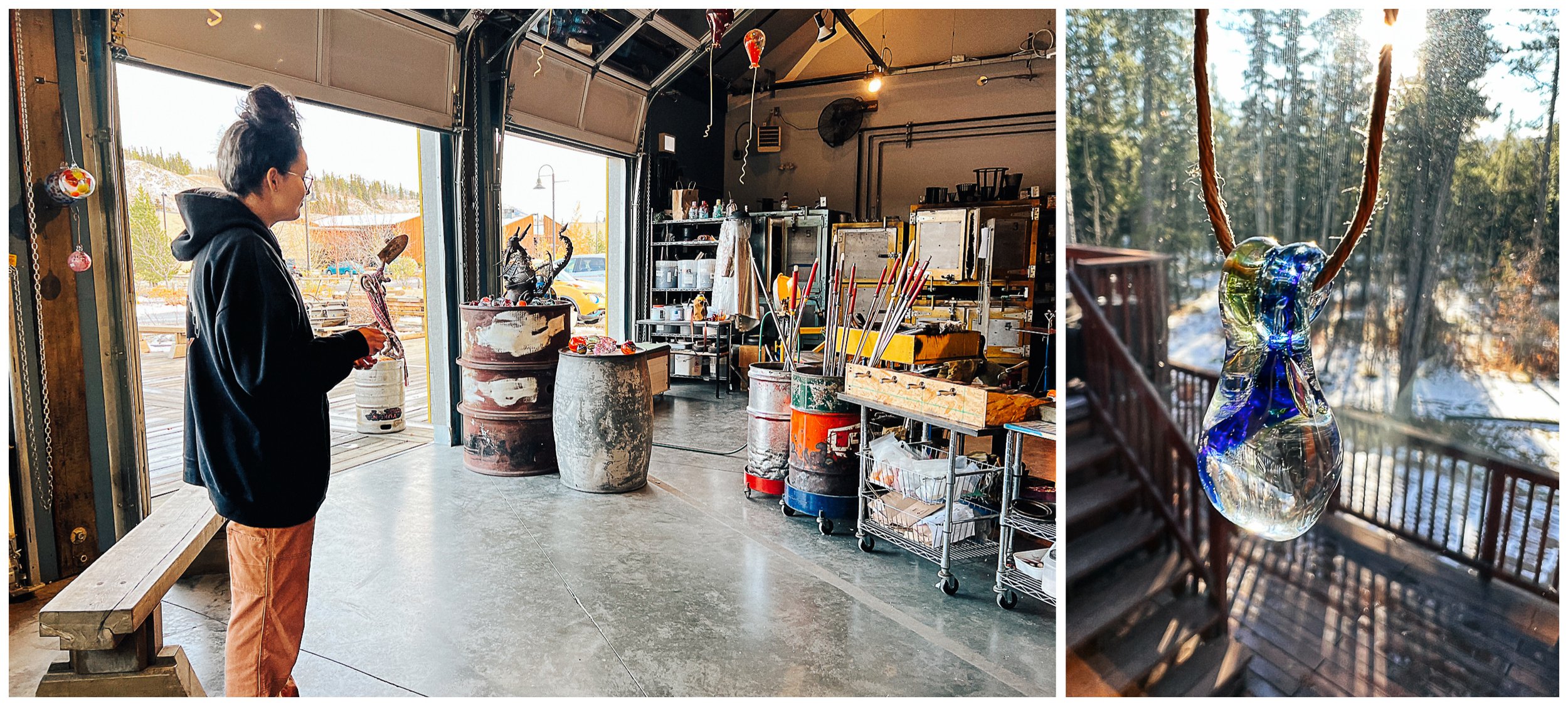A winter in the Yukon
On our way North with the Audi. We packed everything we would need for 6 months!
I’ve been asked by some of you to share how it has felt to be temporarily sedentary after almost 10 years of nomadism.
It wasn’t easy. Especially since it also happened at the same time as the twins moving away to go to University (Aïsha is in Montreal and Mara in Victoria).
I missed what was my normal for so many years: the movement of the road, the togetherness of our days. The spontaneity. And the feeling of aliveness that came with it.
I missed the bus as an extension of myself.
At home at the housesit where we would stay for 6 months near Whitehorse.
I have long wondered why I could not stay in place, what was wrong with me for always craving new adventures to the point that staying put made me feel like a part of myself was missing.
Trying to be sedentary feels like Groundhog Day for me. I feel stuck. I feel dull.
That’s the part where you roll your eyes and think how much I sound like a privileged child.
I get it. I am. And that’s why I hesitated to share this.
We had a week without snow when we arrived and I made the most of it picking rosehips and cranberries.
I could have avoided exposing this not-so-admirable part of myself and tell you that I was meditating on impermanence, loss and love. That I loved the house we were renting, the fireplace, the animals, the trails right at our doorstep. That I was thankful to have more time with friends, opportunities to be more involved in the community, that I loved the silence of winter and the wildness of this place.
And it would all be true.
Wood chopping and stacking for the winter.
For Mathilde’s birthday, we went to Lumel studio and she made a pendant with Stout’s ashes in it.
But the question was: how did it feel? And the answer to that is that I was struggling.
I felt like I was waiting for Spring, like I was biding my time, like a part of my identity was on hold.
There were days where it felt like a soul sadness. And that’s when I confused it with depression.
But it was not.
We walked in the forest behind the house daily with the dogs. There were miles and miles of trails and never a soul on them.
I know many people will read that and think: of course, I would also much prefer a life of travel to the life I have, stuck at home for most of the year. But the truth is that many people have enough of it after a year of full-time travel. It’s not true that it is for everybody.
We are all different and I realize that I do better when I move around more.
For many people, it is exhausting.
We went Christmas tree harvesting. The sun barely got over the mountain at that time of year. It was dark until 11 am…
There were lots of dog snuggles and great time with friends.
Sam Woolfe writes this on his blog:
When you return home, there can also be a kind of reverse culture shock, where your comfort zone is challenged, not by the novelty of a new country, but by the familiarity of home.
So after the initial reunion and catch up with family and friends, you realize your previous way of life has ended, and you must now re-adjust back to going to the same places, seeing the same people and staying in one place.
From the point of view of everyone else, though, complaining about coming back can seem like snobbery, entitlement and avoidance of the ‘real world’ – a curious term that translates into a somewhat depressing situation, of the felt unavoidability of sameness and familiarity.
Some very cold day exploration and hot cider by the fire.
Mara and Aïsha came for 2 weeks during the holiday and it was so good to be all together!
He continues: I cannot help but think about how insane it is that this way of living has become normalised; it is Kafkaesque to the point of causing real and serious anxiety. You have no idea how things got to be set up this way, but you still find yourself inexorably pushed into, and a player in, this strange game called ‘real life’. Everyone does it, so don’t whine about it. But still, the thought is there: How do I get out?
But, to want to avoid this ‘return to reality’ can elicit self-denigration, judging yourself to be lazy, reality-averse, immature, weak – a self-entitled millennial. And you may find yourself having to deal with these judgements from others as well. There are expectations to meet and if you don’t meet them, then you might be considered a drop-out or dysfunctional. Coming ‘back to reality’ is always used in a way to mean that reality is dull and stressful, but it’s just how things are, so you have to deal with it.
(Obviously, post-travel blues are a ‘first-world problem’, so it isn’t an experience that should be catastrophised.)
In February, we had quite the northern light show!
There were moments in my life where staying put felt physically hard, like an ache, or an itch.
Maybe that’s where the expression having itchy feet comes from.
Do you remember the feeling of getting a new coloring book when you were a child? That feeling when you started a new page and completed it. And turned to the next one.
This is what living on the road feels like. A new coloring book page every day.










